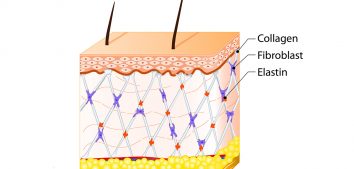
THE ROAD TO HEALTH: Take a Deep Breath – Are You Sure It’s a Good Strategy? J. Borska
Have you ever wondered if you breathe properly? After all, this mechanical process, to which we pay little attention, allows us to live! I invite you to read today’s post by Justyna Borska. Justyna will discuss the influence of proper breathing on our health in the series “The Road to Health. Do you know that…?” ?
When was the last time you thought about your breath? How often are you aware that you are breathing, how you do it, and how it affects your health?
Not many people think about and analyze their breathing every day, which is a pity. Unfortunately, the issue of breath is often forgotten because we treat this process as something that is given to us, and we don’t pay much attention to it. It’s good that more and more people are focusing on adequate, unprocessed diet and exercise, but breathing remains in the last place. And that’s our mistake. Why?

We cannot survive without breathing. Without food, our body can function for many days, a bit shorter without water, and with no breathing we can’t survive even a few minutes. Even so, we pay very little attention to it.
Okay, so let’s answer the question: How does breathing affect us every day and how should we do it anyway? We often hear, “breathe deeply” or “take a deep breath”, but should we really treat this advice seriously?
We associate breathing just with inhaling and exhaling, but in reality the process is much more complicated. The entire gas exchange that takes place in the lungs enables oxygen to be delivered to each of our cells. That is why it is so important how we breathe in and how we let the air out. We don’t realize the huge impact the breathing process has on our body, on our well-being, susceptibility to various diseases, stress, allergies, but also on our sleep and whether we wake up refreshed or tired.
In general, I would like to focus on all kinds of abnormalities in breathing, which lead to many sleep problems, and hence to health problems.
At the end of the 19th century, Breyer & Gering, two Austrian scientists, discovered that humans were the only species on Earth that had not developed the correct way to breathe. Some of us breathe deeply, while for others shallow breathing seems normal, some do it fast, some very slow, some intermittently, some without. Later research studies by prof. Buteyko have shown that only about one in ten of us breathe properly, thus providing ourselves with a very specific gas mixture that our bodies need to function properly.
We currently have a problem with breathing because this process has been disturbed by many factors, such as stress, little or no physical activity, a sedentary lifestyle combined with a processed and unhealthy diet. There are also environmental factors – air pollution or overheated rooms, all of which have led us to bad breathing habits. I think few of us are aware of how these bad habits and conditions can lead to many health problems. We often look for the causes of our problems in the wrong places.

Bad breathing habits lead not only to respiratory problems – such as asthma, but also to heart disease, obesity, chronic fatigue, insomnia and other sleep problems, and thus to apathy and lack of concentration. It may seem improbable to us, but many studies have confirmed that such a seemingly obvious activity as breathing affects every part of our body and every single cell.
Unfortunately, looking at how we live today, in constant rush, dealing with lots of problems on an everyday basis, spending long hours at work, in front of screens and on phone calls, we are tense and stressed out all the time. We often hyperventilate.
Which means we inhale too much air in relation to what our body actually needs. It is often two or even three times the normal volume. And we do it completely unconsciously. What’s more, we breathe air through the mouth and not through the nose.
It is worth pausing for a moment and asking yourself a few questions about your own breathing. This way you can find out whether you also have a problem with hyperventilation. It is also worth asking yourself these questions to prevent many diseases, and to cure or minimize the effects of the ones you already suffer from.
Ask yourself:
- Do you often keep your mouth open? For example, during the day, in various situations, even when working at a computer, watching TV, while driving a car or other activities?
- Do you often wake up tired, sleepy, apathetic and lack energy?
- Is your throat dry in the morning?
- Do you sleep with your mouth open?
- Or maybe your family can’t stand you anymore because you snore so loud?
- Do you often have problems with a blocked nose?
- Do you feel dizzy and often yawn?

These are just some of the questions you should ask yourself, but if your answer to them is yes, then you are affected by hyperventilation.
After all, each of us wants to get a good night’s sleep, be healthy, refreshed, burst with energy and live life to the fullest. That is why it is worth spending a bit of your time and delving into the subject of breathing. The human body is a wonderful machine that can regenerate and heal if we only help it a little, or at least if we don’t disturb it.
Professor Buteyko, who was the forerunner of knowledge about nasal breathing, he was the person I came across during my research on my path to health. For many years I was sick and had various ailments that were more and more complicated to treat. I have received many diagnoses over the years, but in fact none of them matched my symptoms. Eventually, multiple sclerosis and chronic neuroborreliosis were found.
During many years of illness, I tried to find answers to various questions, I introduced many changes to my life related to diet, massage, acupuncture, acupressure, but I thought about breathing at the very end. The last few years I have been inspired to find out more thanks to Patrick McKeown – the author of the book “Oxygen Advantage”. It was thanks to this book and Patrick’s lectures that I started to take my breath seriously. But I also wanted to spread the knowledge about its essence and importance.
Thanks to him, I started introducing breathing habits into my life, which were completely different than before. So what should we do to stop using our mouth too much and start using the potential of our nose?
Let’s close our mouths. It may sound strange, but that’s where the road to well-being actually is. Many people are unaware that they sleep with their mouths open, which leads to many abnormalities and disorders.

In addition to filtering, heating and humidifying the air you breathe, your nose is your first line of defense against allergens and pathogens. Mouth breathing reduces our resistance to bacteria and viruses, as it is much easier for them to enter through the mouth without any barrier. Breathing through the mouth can worsen the symptoms of colds, flu, and other respiratory illnesses. We also lose the ability to filter the air.
People tend to breathe more through their mouths when they’re stressed out or during exercise, as they seem to get more air into their lungs this way. However, according to the doctor Zary Patel, a rhinologist and otolaryngologist at Stanford Medicine, the lungs cannot use this air as efficiently because it is not heated or moistened as it would be when breathing through the nose. “Your lungs have to work harder to get oxygen from the air you breathe in through your mouth than through your nose,” says Patel. We breathe through the mouth also because our and our kids’ noses are blocked, and unfortunately we develop these habits over the years.
Of course, it is known that we are not able to breathe only through the mouth. However, the habit of nasal breathing should accompany us at night. Unfortunately, if we breathe through the mouth at night, we can have many ailments such as difficulty falling asleep and waking up, dry mouth and throat, gum disease, bad breath and snoring. More long-term potential effects include changes in the shape and position of the jaw, and chronic breathing problems such as sleep apnea, which may lead to future pulmonary and cardiovascular complications. That is why it is so important that our mouths are closed during our sleep. Due to frequent infections, blocked nose, allergies and other nose blockers we develop the habit of sleeping with our mouths open for years. We cannot even control it and it’s especially impossible at night. Therefore, I encourage everyone to learn about the effects of sleeping with an open mouth and introduce mouth tapes for the night.
Mouth tapes were developed by Patrick McKeown, author of the book “Oxygen Advantage”. These tapes are completely safe as they do not actually block the access of air. They frame the lips in a way that keeps them closed while you sleep. The tapes can be used in children over 4 years old. It is worth making sure that your nose is not blocked, so I encourage everyone to do exercises to unblock it, which are very helpful and safe. In order to develop the habit of keeping our mouths closed more and more often, we should simply remember about it and control the lips throughout the day. It often happens that when we perform some activities, we keep our mouths unnecessarily open and inhale a lot of air through our mouths. This is particularly common in children who spend a lot of time watching TV or looking at telephone screens develop this habit quite early. This results in many negative changes, including problems with short attention span, so it is worth controlling it from an early age.
It is advisable to be aware of the symptoms that can be triggered by sleeping with an open mouth. These include
In children:
- delayed growth;
- irritability;
- increased number of episodes of crying at night;
- large tonsils;
- dry, chapped lips;
- problems with concentration at school;
- daytime sleepiness;
- children who have trouble concentrating in school are often misdiagnosed with attention deficit disorder (ADD) or hyperactivity.
In adults:
- snoring;
- hoarse voice;
- sleep apnea;
- bad breath;
- chronic fatigue;
- brain fog;
- dark circles under your eyes;
- irritability and fatigue after waking up.
These symptoms are quite common and are often the cause of many misdiagnoses. Therefore, we should focus on our breath to avoid unnecessary ENT or pharmacological interventions in cases where we can simply change the way we breathe. It is probably not pleasant and simple at first, you should be prepared that it’s a process, but the effects are visible quite quickly, and the health benefits are a great reward.

We become more refreshed, it is easier for us to focus, it is also easier to control our nervousness and stress, we become calmer. The family stops complaining about our snoring and we feel relieved. Effects are easy to see in children, as they are quicker to adapt to their nasal breathing. They are less likely to develop upper respiratory tract infections and are more immune. In the case of a runny nose, they are able to react quickly and minimize its severity with a simple exercise.
There are many benefits of breathing through the nose, but unfortunately it is impossible to discuss them all here. That’s why I encourage you to read articles on this topic and also recommend the book “The Oxygen Advantage” by Patrick McKewon ?









Comments No Comments
Join the discussion…